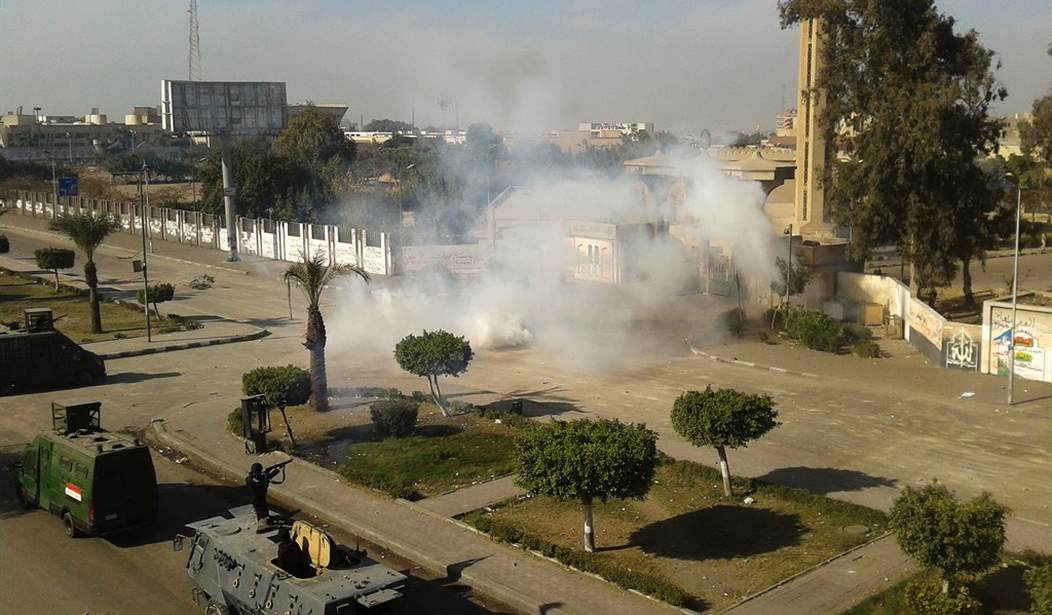Three years after the Jan. 14, 2011, fall of dictator Zine El Abidine Ben Ali, Tunisia continues to be Arab Spring's most promising revolution.
Despite economic troubles, bitter disagreements over the legal status of Islam and terror attacks by Islamist militants, Tunisia has managed to escape the communal horrors afflicting post-Arab Spring Syria (war) and Libya (violent chaos).
Tunisia's Islamist-led coalition government has also managed to avoid (while closely observing) the Egyptian revolution's two complex, but intimately connected historical disappointments: (1) the divisive, religious identity-politics constitution uncompromisingly written and imposed by the Islamist identity-politics victors of Egypt's free, post-revolution election and (2) the Egyptian military's subsequent popular and nationalist coup which toppled the inflexible, incompetent, distrusted, though democratically elected Islamist government, which imposed the destructive constitution.
No doubt the mistakes made by Egypt's former president Mohamed Morsi and his Muslim Brotherhood regime informed and perhaps even tempered the decisions of Tunisia's political Islamist Ennahda party. Ennahda has its share of Islamist extremists who are as disagreeably short-sighted and self-destructive as Morsi.
However, Tunisia's revolt preceded Egypt's. In November 2011, Ennahda won Arab Spring's first free election and assumed governing and constitution-drafting responsibilities well before the Brotherhood governed in Cairo. Ennahda's key leaders also publicly committed themselves to creating a democracy, well before Morsi and his cadre gave Egyptians a similar assurance.
But Morsi and his cohort lied. Enshrining Islamist identity-politics in the post-revolution constitution superseded revolutionary unity. It also killed democracy. Though at times they wavered, on the essential issues, Ennahda's leaders kept their word. They shared power with secular allies and when conflicts occurred, ultimately (if begrudgingly) sought consensus solutions. Muslim Brotherhood religious belligerence alienated secularists. When Morsi confronted serious challenges, he invoked rule by decree.
Recommended
Despite gridlocked disagreements over drafting the constitution, Tunisian political leaders maintained a unified commitment to democracy. Abolhassan Bani-Sadr deserves credit for emphasizing the importance of a unified democratic front. Bani-Sadr, Iran's first president after the 1979 revolution, has been living in exile since 1981, the year the Ayatollah Khomeini removed him from power. In a January 2011 essay, Bani-Sadr told Tunisians that protecting their revolution meant "despite their many differences from secular to Islamist, political organizations should develop a common commitment to democratic values and the rights of individuals."
According to Bani-Sadr, Iranian political organizations failed to make a full commitment to democracy. They didn't hang together, so they hung separately. "Lacking the unity of a democratic front, one by one they became targets of power-seeking clergy in the form of the Islamic Republic Party, and were pushed aside."
As disagreements over Tunisia's constitution hardened, violent Islamic militants tried to shatter the democratic front. In February 2013, Islamist terrorists assassinated opposition politician Chokri Belaid. Angry secularists burned an Ennahda party office. However, secularist and Ennadha leaders called for calm, arguing that the militants' strategic target was the democratic consensus.
In July 2013, militants murdered left-wing leader Mohamed Brahmi and al-Qaida-aligned Ansar al-Sharia terrorists killed eight Tunisian soldiers. Secularists accused Ennahda of failing to vigorously confront Muslim terror. The charge may have been unfair, but Ennahda had to acknowledge that a democracy cannot tolerate political assassination.
Four Tunisian civil organizations responded to the violence and division by forming the Quartet. The Quartet Initiative called for a national dialogue to resolve deadlocked constitutional disputes, draft and approve a consensus constitution, and transition to a constitutional democracy. Essentially, the Quartet challenged Ennahda to demonstrate it supported a "peaceful rotation of power." In October 2013, Ennahda accepted the initiative. Its coalition agreed to turn the government over to a caretaker president (this month, Jan. 14) and hold new elections after parliament approved a consensus constitution.
This week, Tunisia's parliament approved a new constitution, and it is not based on sharia law. It provides for a separation of powers within the government, and guarantees civil rights, including the right to freedom of conscience. Women have equal political rights. Article 20 makes that explicit: men and women "are equal before the law without discrimination."
In 2011, I surmised it would take three decades (at least) before we can knowledgably judge the success or failure of Tunisia's democratic revolt. However, to purloin a great phrase, adopting a consensus constitution and conducting a "peaceful rotation of power" would mark the end of the revolution's beginning.

























Join the conversation as a VIP Member